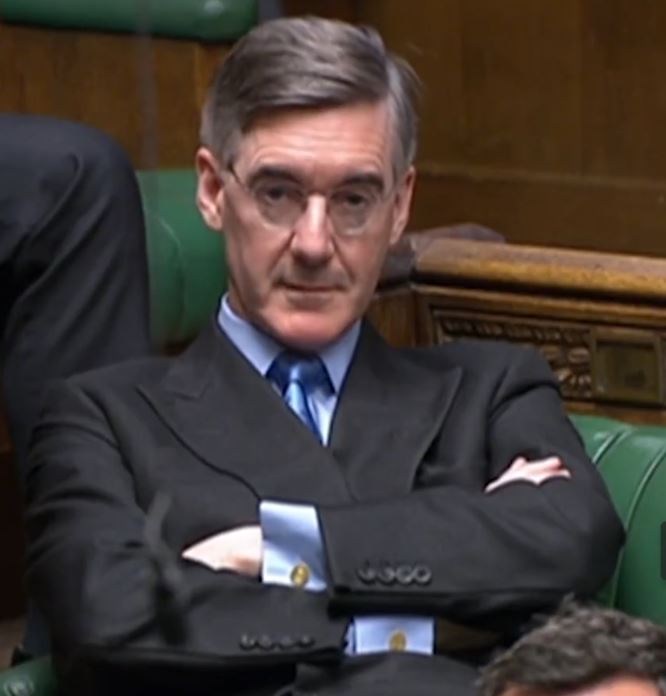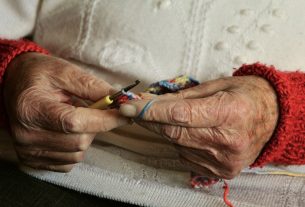Sir Jacob Rees-Mogg might now be a knight but his performance yesterday in seeking to defend the liar Boris Johnson underlines his reputation as being “so bizarre” that he seems utterly “unreal”.
Sir Keir Starmer’s big policy speech – setting out Labour’s green energy strategy – eclipsed, once again, by events in the Commons where the focus, once again, was all on the debauched Johnson.
But, and it is a big but given the history of the “greased piglet” and eventual denouement of investigations to come, the debate may signal an ending of sorts and thereby a welcome return to political debate focusing on policy as opposed to personality. The perilous state of the nation demands it as people struggle an ever worsening cost of living crisis while simultaneously the social infrastructure and civic institutions crumbles.
Because yesterday MPs voted to banish the disgraced former prime minister Johnson for lying to them.
Of course, Johnson sought to evade their punishment by pre-emptively resigning his seat as an MP before his erstwhile peers kicked him out. However, such is the proven level of his mendacity that MPs took the extra and unprecedented step and voted to strip Johnson of his parliamentary pass, which is normally granted to former MPs to access the palace of Westminster.
hi “final humiliation”, according to the Independent. Millions of people will hope not, hoping instead for something far more just and fitting for such a debaser.
Trying to prolong the charade and to hide the extent of how far his support has dropped among MPs, Johnson had instructed his remaining sycophants not to vote against the privileges committee report into the extent of his deceit. Amazingly, seven loyalists still did while a larger number voiced their support for their fallen leader from the green benches. Chief among them being the recently knighted – by Johnson – Sir Jacob Rees-Mogg (though a far larger number of Tories – including Rishi Sunak – absented themselves from the proceedings completely).
Having little with which to defend Johnson, Rees-Mogg turned his ire on the chair of the privileges committee, Labour’s Harriet Harman. And, in what the Independent describes as a “feisty exchange”, challenged Harman over her “famous” tweets, critical of Johnson (with one in particular suggesting the former PM’s acceptance of a police fine for illegal partying was admission he had misled the House).
These tweets, the knight of the realm, member for North East Somerset since 2010 and GB News TV presenter (for which he’s paid £32,083 per month), suggested, in his own unique and particularly peculiar manner, evidenced a “perception of bias” by the chair.
Ever a man for parliamentary precedent, Rees-Mogg inquired if “the right honourable and learned lady” had passed the (Lord) Hoffmann test which saw a Lords committee set aside its judgement “not because” Hoffmann was biased, “but because of the perception of bias”.
Harman rebuked the slur, reminding she was unanimously appointed by the House and revealing she had inquired exactly this of the government when she was appointed chair of the committee, and had received assurances from them that her suitability was unquestioned.
In fact, as Harman told the slouching Sir and assembled MPs, she had made it “my business to find out whether or not it would mean that the government would not have confidence in me”.
Harman – the longest serving female MP first elected in 1982, a former minister, secretary of state, QC, Solicitor General, two-time leader of the Labour party (May-Sept 2010 and May-Sept 2015) having twice been deputy leader (for a combined eight years) – continued: “And I actually said I am more than happy to step aside because perception matters and I don’t want to do this if the government doesn’t have confidence in me.”
Rees-Mogg could only concede with a nod and a smirk while another MP was overheard saying, “Oh dear, I think that’s a mic drop. I think that’s a mic drop, Jacob Rees-Mogg.”
It was a slam dunk for the London Economic which describes Sir Jacob as “so bizarre” he doesn’t “seem real”. Sir Jacob is the son of former Times editor, BBC board member and High Sheriff of Somerset Baron William Rees-Mogg and Tory MP Gillian Shakespeare Morris. A stock market investor since the age of seven with a self professed “love” of money, Rees-Mogg, like Johnson David Cameron and a host of other “notable” MPs) is a former Eton schoolboy who went on to Oxford university.
That he likened the privileges committee to “communist China” puts into question his education while his judgement deserves similar quizzing for saying Johnson being stripped of his parliamentary pass was going “from the vindictive to the ridiculous”.
He may have made a fool of himself (again) but at least Rees-Mogg, unlike PM Sunak – who promised professionalism, accountability and integrity when taking over at No 10 – and countless other Tories, turned up for the debate. But even then, and despite his interventions, he still didin’t vote against the report.
Former PM Theresa May was there, and provided some suggestion that all reason is not completely lost in the Tory party, urging members to vote for the report “to uphold standards in public life, to show we all recognise the responsibility we have to the people we serve, and to help restore faith in our parliamentary democracy.”
However, such has been the damage caused by Johnson and his cronies to the institutions of government and British democracy as a whole, it is going to take a whole lot more than platitudes and mere words to repair it.
Sunak’s absence underlines the point – as well as the perilous nature of his position. As Thangam Debbonaire, Labour’s shadow leader of the Commons, remarked, Sunak is “too weak to stand up to Boris Johnson and his sycophants, which is profoundly dangerous, because if we can’t have a prime minister that stands up for standards, what have we got?”




